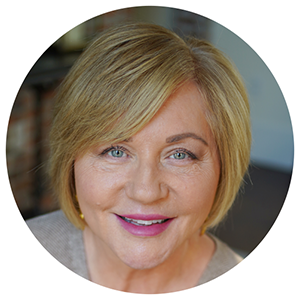Orlando OCD Therapy & Evidence-Based CBT / ERP Treatment
(GroundWork is based in Central Florida, and offers virtual sessions for clients residing in: Florida, Maine, Vermont, South Carolina & Montana)
 At GroundWork in Orlando we specialize in the treatment of Obsessive-Compulsive Disorder (OCD) utilizing evidence-based Cognitive Behavioral Therapy (CBT). Obsessive-compulsive disorder (OCD) is a disorder that is characterized by distressing, unwanted, intrusive thoughts and/or repetitive compulsive physical or mental acts. OCD can affect adults, adolescents, and children.
At GroundWork in Orlando we specialize in the treatment of Obsessive-Compulsive Disorder (OCD) utilizing evidence-based Cognitive Behavioral Therapy (CBT). Obsessive-compulsive disorder (OCD) is a disorder that is characterized by distressing, unwanted, intrusive thoughts and/or repetitive compulsive physical or mental acts. OCD can affect adults, adolescents, and children.
We provide Exposure and Response Prevention (ERP) for adults, teens, and children, which research has shown as the most effective treatment method for OCD for individuals of all ages.
For information regarding pediatric OCD treatment please click Here.
About Obsessive-Compulsive Disorder (OCD):
Obsessions are thoughts that may present as impulses, urges, ideas or memories. Compulsive behaviors work to reduce or avoid the discomforts of the obsession and can include physical acts such as washing, checking and list-making or mental acts such as reviewing, counteracting or neutralizing. The urges of obsessive-compulsive disorder can become all consuming and are often debilitating. While the individual suffering from obsessive-compulsive disorder may realize that their obsessions aren’t reasonable, they are unable to stop them or ignore them and this often increases the individual’s distress and anxiety. In order to ease the anxiety, the individual experiences urges to perform compulsive acts; this leads to a vicious cycle of obsessive-compulsive behaviors.
Many individuals with obsessive-compulsive disorders hide their symptoms because of the stigma or embarrassment associated with their symptoms. As a result, many individuals with obsessive-compulsive disorder do not seek the help of a therapist until many years after the onset of symptoms. In addition, finding a therapist who can effectively treat obsessive-compulsive disorder (OCD) can be a challenge. Therapists and Psychologists trained in Cognitive Behavioral Therapy (CBT), particularly Exposure and Response Prevention (ERP), have been found to be most effective in treating clients who suffer from OCD. Exposure and Response Prevention (ERP) refers to making a conscious choice not to do a compulsive behavior after experiencing a situation that make an individual with OCD anxious and thereby, the compulsive behavior is decoupled from the reactive anxiety.
Common obsessions include:
- Fear of contamination (e.g. germs, body fluids, dirt)
- Fear of loosing control (e.g. fear of violent images in ones mind, fear of acting on impulse to harm oneself or others, fear or blurting out words)
- Fear of sexual thoughts (e.g. incest, aggressive sexual behavior)
- Fear of harm (e.g. causing something terrible or dangerous to happen)
- Religiosity (e.g. concern about offending God, blasphemy, morality)
- Perfectionism (e.g. exactness, must be seen as competent, accomplished)
- Feeling that things are not right or incomplete
Common compulsions include:
- Washing and cleaning (e.g. excessive, precise hand washing, cleaning items or things excessively, doing things to avoid contamination)
- Checking (e.g. checking that you did not make a mistake, checking parts of your body, checking that nothing bad happened)
- Repeating (e.g. touching, doing activities in multiples, repeating routine activities)
- Mental compulsions (e.g. praying, counting, cancelling, mental review of events, magical thinking)
- Collecting items
- Arranging things
- Asking or confessing to get reassurance
Treatment For OCD & Finding A Qualified Therapist
At The Center for Anxiety and OCD at GroundWork Counseling, our two OCD therapists have received highly specialized training for the treatment of OCD from the International OCD Foundation’s renowned Behavior Therapy Training Institute (BTTI), a level of training for the treatment in OCD that is obtained by less than 1% of practicing mental health providers, which includes psychiatrists, doctors, psychologists, mental health counselors and therapists.
Many people seeking treatment for OCD are not aware of the many different viewpoints, theoretical approaches and levels of training that influence a therapist’s treatment method. Many individuals who suffer with OCD become frustrated because despite many hours of therapy, their OCD is not improving. Not every therapist who claims to treat OCD actually knows how to treat it. OCD treatment requires a type of cognitive behavioral therapy (CBT) that consists of a specialized procedure called Exposure and Response Prevention (ERP). For example, any medical doctor can listen to your heart with a stethoscope, but only a few can perform cardiac surgery. Likewise, many therapists can help someone who is feeling depressed, but only a few can effectively treat OCD due to its complexity.
Studies have shown that it takes an average of 14-17 years for an individual with OCD to find the right kind of care. Numerous studies have shown that while CBT is the best treatment for OCD, yet many therapists have never received in-depth training in CBT for OCD, even though some therapists have been practicing for decades. This has created a severe shortage of professionals adequately trained in the most effective treatment for OCD and often leads to therapists relying on medications alone or other using other unproven methods that are not likely to be effective.
It is important to interview your prospective therapist to find out if they are trained to do Exposure and Response Prevention (ERP), and where they received their training (visit our list of suggested questions). Some therapists are better at treating OCD than others. Their answers to your questions will be a good guide for you. You can begin by asking them about what types of techniques they use to treat OCD. If the therapist doesn’t mention Cognitive Behavioral Therapy (CBT) or Exposure and Response Prevention (ERP), or if they are vague, use caution. When you ask about Exposure and Response Prevention (ERP) to treat OCD, be cautious of therapists who say that they use CBT but who won’t be specific. Be sure to ask about their training and background in treating OCD. A positive sign would be membership in the International OCD Foundation (IOCDF) or a member of the Association of Behavioral and Cognitive Therapists (ABCT). Look for therapists who have sought specialized training offered by the IOCDF. An example would be the IOCDF Behavior Therapy Training Institute (BTTI) and the Annual IOCDF Conference.
Consider asking the following questions:
- Do you have a background in treating adults with OCD?
- How do you treat OCD?
- Are you trained to treat OCD and where did you receive your training?
- How many individuals with OCD have you successfully treated?
- What percentage of your therapeutic practice is working with OCD?
- Will you work with and coordinate with other treatment providers such as physicians and psychiatrists if needed?
- Are you willing to treat OCD in the setting it most frequently occurs, if necessary?
- Do you involve family members (such as parents, spouses, or children) in treatment if needed?
- See Our Full List Of Questions
Warning signs:
- If the therapist tells you that he or she treats OCD using talk therapy, relaxation, role playing, alternative therapies or an “eclectic approach”
- If the therapist sees a wide variety of challenges and populations but also claims to specialize in OCD
- If the therapeutic treatment is aimed to find out “what caused” OCD
- If a therapist suggests using “thought stopping” techniques
- If the therapist implies that you will need years of therapy for OCD
- If the therapist suggests that learning “coping skills” will help treat OCD
- If the therapist becomes guarded or defensive about your questions or answers in vague terms
- If the therapist tells you that your childhood experiences caused OCD
We Specialize In Treating
- Obsessive Compulsive Disorder (OCD)
- Harm OCD
- Checking OCD
- Sexual Identity OCD
- Relationship OCD
- Contamination OCD
- Just Right OCD
- Perinatal and Postpartum OCD
- Scrupulosity/Religious OCD
- Body Dysmorphic Disorder (BDD)
- Dermatillomania (Excoriation or Skin Picking Disorder)
- Trichotillomania (Hair Pulling Disorder)
- Hoarding
Our Lead Adult OCD Therapist

Marion Rodrigue, MS, LMHC, NCC
![]()
Adult OCD Therapist
Diplomate of Cognitive Behavioral Therapy
Marion is Licensed in Florida, and is a registered Telehealth Provider in Vermont
Marion Rodrigue is a Licensed Mental Health Counselor (LMHC), a Diplomate of Cognitive Behavioral Therapy from the Academy of Cognitive Therapy (ACT) and a National Board Certified Counselor (NCC). Marion specializes in providing cognitive-behavioral therapy with an emphasis on Exposure and Response Prevention (ERP). Marion received training in Exposure and Response Prevention (ERP) for Obsessive-Compulsive Disorder (OCD) from the International OCD Foundation’s prestigious Behavior Therapy Training Institute in Houston Texas and from Massachusetts General Hospital Psychiatry Academy. Marion also received certification in Cognitive Behavioral Therapy (CBT) from the Albert Ellis Institute in New York, New York. Marion approaches each client with determination, enthusiasm and a good sense of humor. She constructs an individualized, evidenced based treatment approach for each client, with the goal of helping each person to become an expert at managing their anxiety and OCD symptoms. Part cheerleader, part coach, Marion loves being able to rejoice along with her clients as they overcome their most challenging situations. Learn More About Marion
Ready To Make A Change?
GroundWork is proud to offer both in-person &
virtual Telehealth appointments.
In-Person Sessions: Central Florida
Virtual Sessions: Florida, Maine, Montana, Vermont, South Carolina
Where You’ve Seen Us
Our clinicians are experts in the field and contributors to important conversations about mental health.
More Information
About Obsessive-Compuslive Disorder (OCD)
The updated Obsessive Compulsive Disorder segment in the Diagnostic and Statistical Manual of Mental Disorders, Fifth Edition (DSM-5), also includes the following:
- Body Dysmorphic Disorder (BDD) The characteristic feature of Body Dysmorphic Disorder (BDD) is an obsessive concern or recurrent anxiety-inducing thoughts about a perceived flaw in one’s physical appearance. Individuals with Body Dysmorphic Disorder have more than an ordinary concern about one’s appearance and it can significantly interfere with interpersonal relationships, as well as professional and academic functioning.
- Hoarding Disorder Hoarding Disorder is a new diagnosis in DSM-5. Difficulty discarding possessions, difficulty organizing possessions and acquiring too many possessions characterize hoarding. If these hoarding behaviors lead to clutter and mess that is significant enough to affect one’s health or safety, a hoarding disorder may be diagnosed.
- Trichotillomania (Hair-Pulling Disorder) Trichotillomania is characterized by pulling out hair from the scalp, eyebrows, eyelashes, pubic area, underarms or other parts of the body, bringing about perceptible bald patches. The urge to pull out one’s hair can bring about feelings of shame and embarrassment and can lead to problems at home, school or work. Hair-pulling can occur when an individual experiences fear, anxiety, or boredom.
- Excoriation (Skin-Picking) Disorder Individuals who suffer from Excoriation Disorder (skin picking disorder) compulsively rub, scratch or pick their skin, often in an attempt to take away small skin imperfections. This skin picking behavior may lead to scarring, discoloration of the skin, and in some severe cases, tissue damage and disfigurement. As with hair-pulling, skin picking can occur with feelings of anxiety, fear or boredom and individuals who pick their skin often describe the act as pleasurable and relaxing.




















